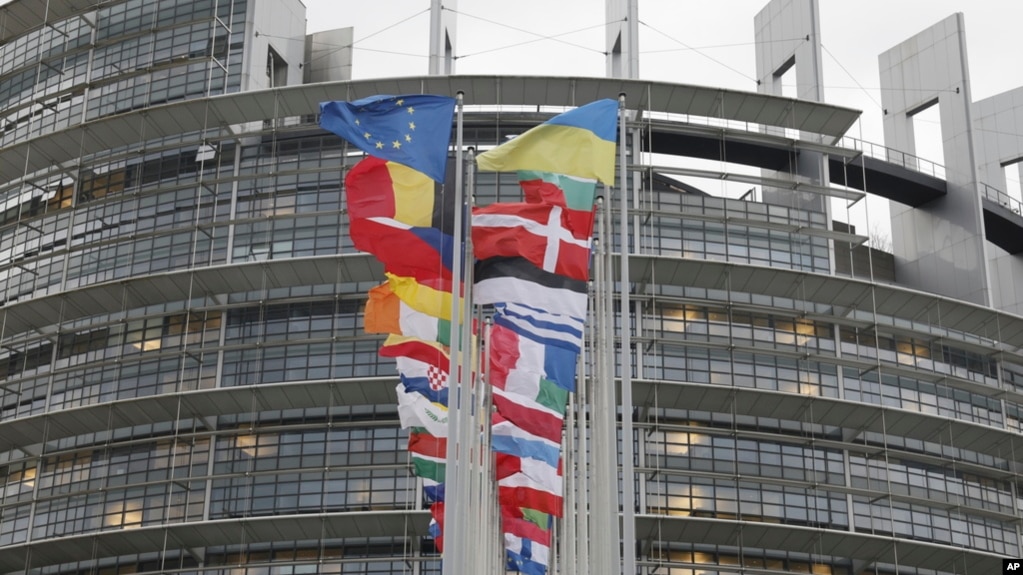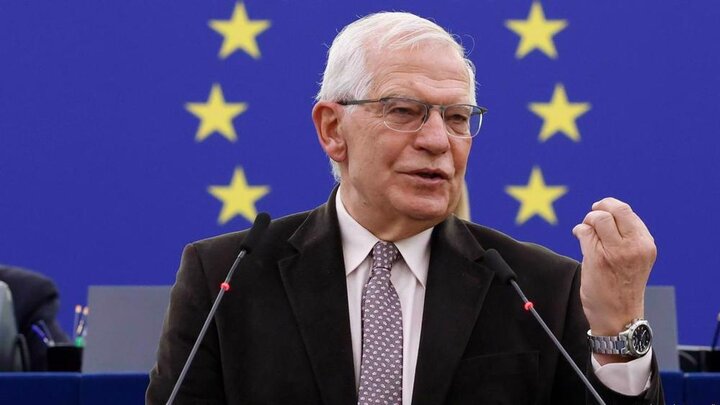Report: Shin Bet chief refused ministers’ demand to act against protesters
Security agency will not ‘become a secret police,’ Ronen Bar said to have told ministers Levin, Ben Gvir, who accused him and other officials of ‘selective enforcement’
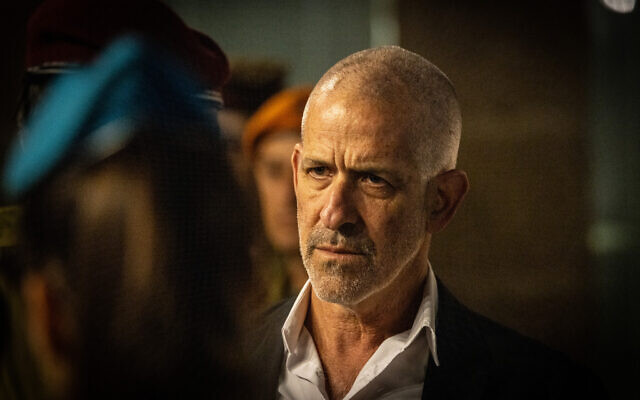
File - Ronen Bar, head of the Shin Bet security agency, attends a Holocaust Remembrance Day ceremony at the Yad Vashem memorial in Jerusalem, May 5, 2024. (Chain Goldberg/Flash90)
National Security Minister Itamar Ben-Gvir and Justice Minister Yariv Levin have reportedly demanded that the Shin Bet use its tools against activists in anti-government protests and were refused by the security agency’s chief Ronen Bar, who said it would “not become a secret police.”
According to a report published by the Haaretz newspaper on Thursday, Bar made the comment at a recent meeting that was also attended by Attorney General Gali Baharav-Miara, State Prosecutor Amit Aisman, and Police Commissioner Kobi Shabtai. Bar reportedly responded to the ministers’ demand by saying it was the police’s job to maintain public order.
Throughout the meeting, Haaretz said, the ministers berated the law enforcement officials for “selective enforcement” in favor of Prime Minister Benjamin Netanyahu’s detractors.
Demonstrations against Netanyahu have roiled Israel since 2020, when protesters began demanding he resign over corruption allegations. The protests intensified in 2023 after Netanyahu’s current government presented its plan to overhaul the judiciary.
The protests were somewhat muted after the Gaza war began on October 7, when thousands of Hamas-led terrorists stormed southern Israel to kill nearly 1,200 people and take 252 hostages. In recent months, however, anti-government protests have resumed — often in conjunction with protests in favor of a truce-hostage deal — calling for new elections due to the government’s failure to forestall the shock assault.
An official who was present at the meeting was quoted as saying, “In internal meetings, they express an expectation that the Shin Bet use its tools against parts of the protest [movement]… They want to turn it into a thought police.”
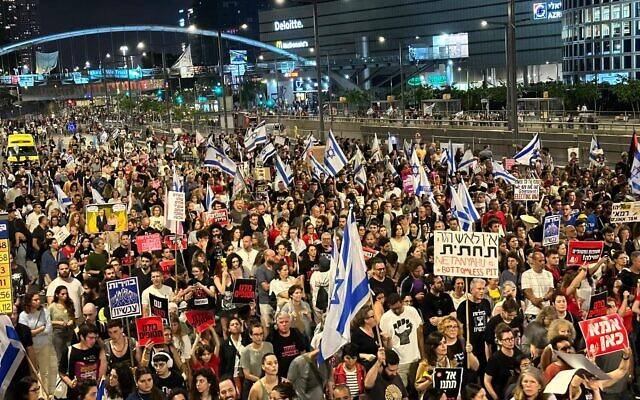
Illustrative: Anti-government protesters march from Begin Street towards Democracy Square in Tel Aviv, May 25, 2024. (Eitan Slonim/Pro-Democracy Movement)
The article also quoted a senior official as saying that Bar has been strongly advised, by his predecessors among others, not to resign from his post over the failings of October 7 until after the prime minister has left his role, “for fear that Netanyahu will appoint a collaborator instead.”
Referencing months of tensions between Ben Gvir and the heads of the police and prison service, the senior official was quoted by Haaretz as saying, “The horror going on in the police and the prison service could happen there, too.”
ADVERTISEMENT
Ben Gvir announced on Tuesday that he would pursue Shabtai’s ouster in the government this week, after Baharav-Miara declared unlawful a dismissal hearing to which the minister had summoned the police commissioner.
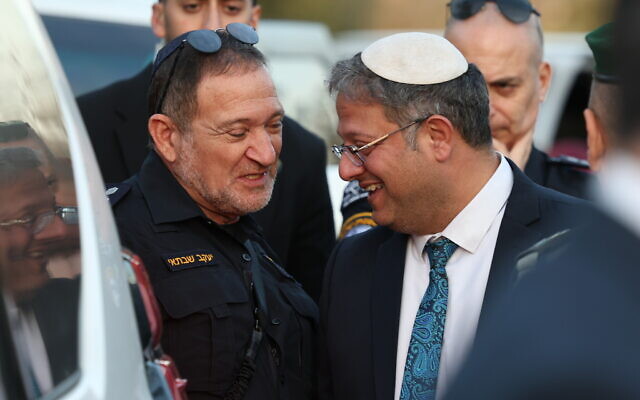
File – National Security Minister Itamar Ben Gvir (right) and Police Chief Kobi Shabtai at the funeral of Border Police officer Sgt. Shay Germay at Karmiel military cemetery on January 7, 2024. (David Cohen/Flash90)
Hebrew media has reported that Ben Gvir is unhappy with the police chief’s decision to guard Gaza-bound trucks of humanitarian aid, which Jewish extremists have violently attacked. Ben Gvir summoned Shabtai for dismissal after police officers violently dispersed a crowd of ultra-Orthodox Jews who had illegally gathered in Meron to light a traditional bonfire on the holiday of Lag Ba’Omer on Sunday.
Haaretz reported earlier this week that police were hesitant to launch an investigation, ordered by Baharav-Miara, into allegations that Ben Gvir’s staff had illegally arranged for the extremist minister’s supporters to receive diplomatic passports and firearms. The newspaper quoted senior figures in the police as saying the hesitancy stemmed from fears the investigation would lead to the minister himself.

